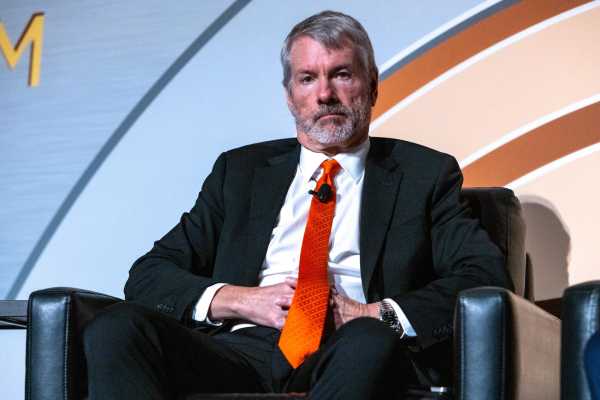BlackRock's digital asset inflows plunge 83% in Q1 to $3B
Inflows into BlackRock's Bitcoin and Ether-linked ETFs fell 83% in the first quarter to $3 billion.
Total digital asset assets under management have grown to more than $50 billion, a significant amount but a relatively small fraction of the more than $10 trillion that BlackRock manages.
Author: Helen Brown | Edited by: Stephen Alpher Updated: April 11, 2025, 6:09 PM Published: April 11, 2025, 2:24 PM

What you need to know:
- BlackRock's crypto ETFs saw net inflows of $3 billion in the first three months of 2025, down 83% from a particularly strong fourth quarter.
- Digital asset funds accounted for 2.8% of iShares' total fund inflows, and fees accounted for less than 1% of BlackRock's long-term returns.
Given the weak price performance of cryptocurrencies in the first quarter of 2025, it was no surprise that BlackRock (BLK) saw a significant decline in net inflows into its Bitcoin (BTC) and Ethereum (ETH) spot ETFs.
Overall, investors poured $3 billion into BlackRock’s digital-asset ETFs in the first three months of the year, according to the company’s first-quarter report. That’s down 83% from the strong inflows seen in the fourth quarter, when prices and sentiment rose on the back of Trump’s election victory.
Even with the price decline, Q1 data still shows strong interest in crypto funds.
That $3 billion represented 2.8% of total inflows into BlackRock iShares’ large ETFs in the first quarter, which also includes active, core equity, and strategic funds among smaller categories. At the end of the quarter, BlackRock managed about $50.3 billion in digital assets, about 0.5% of its total assets of more than $10 trillion.
The digital asset ETF's underlying fees totaled $34 million, or less than 1% of the company's long-term revenue.
The decline in inflows into Bitcoin and Ethereum ETFs last quarter coincided with a 70% quarterly drop in overall iShares inflows from $281 million to $84 billion as global markets struggled to adjust to the changing macroeconomic environment under President Trump.



